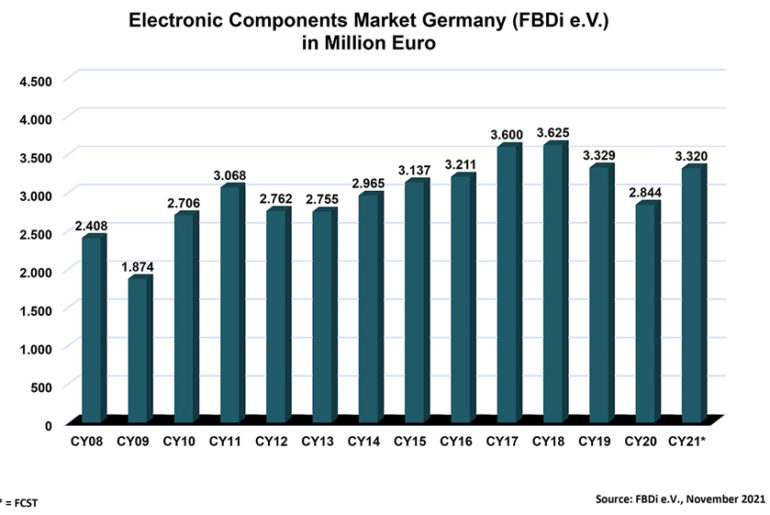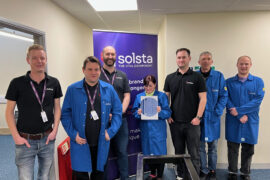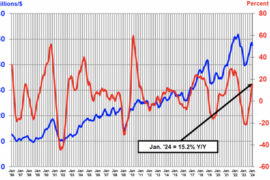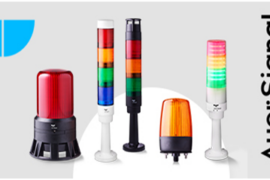The German component distribution market grew 25.2 % to 887 million Euros in the third quarter of this year. Although the summer quarter did not bring new sales records, it clearly ended with record orders says FBDi, the German components distribition association.
Incoming orders set a new record at 1.48 billion Euros, which represents a plus of 135%. As a result, the book-to-bill ratio posted a record-breaking level of 1.67. For the year as a whole, the electronics components distribution industry is expected to grow by between 15% and 20%, returning to the pre-Covid turnover level of around 3.3 billion euros.
At a product level, the FBDi recorded significant differences. Semiconductors, by far the largest product group, grew by just under 20% to 576 million Euros, electromechanics rose almost 38% to 126 million Euros, and passives climbed 38% to 115 million Euros.
Sensor sales rocketed 69% to just under 9 million euros, displays were up 24% to 16 million, power supplies (including batteries) advanced 29% to 34 million Euros, and assemblies and subsystems improved 39% to just under 11 million Euros also increased considerably. This resulted in a slightly different market split between semiconductors (65%), passives (13%) and electromechanical components (14%). Power supplies and the remaining products each contributed 4%.
FBDi Chairman of the board Georg Steinberger commented: “Compared to the once again massive increase in orders, the 25% sales growth in the third quarter is almost disappointing. The lack of availability has clearly had an impact on our growth. How much of the future orders can actually be realised remains to be seen – almost 4.2 billion euros in new orders have been booked in 2021 alone, in three quarters! Even with a lot of imagination, this cannot reflect the true market demand, even if a large part of next year already seems to be in the bag.”
The way in which the components industry – above all semiconductors – has already arrived in the mainstream media amazes Steinberger
“For 35 years, first as a journalist and then as a marketeer, I have tried to make the wonders of microelectronics accessible to a wider public, but this has hardly crossed the industry boundaries. Today, even the daily news reports on the shortage of ‘computer chips’ and its impact on the entire national economy, the ‘new gold’. One can only hope that this will not only result in billions in subsidies for chip production, but finally in the improvement of educational structures that will enable Europe and Germany to develop the leading chips for the future. Kids, become engineers and chip designers!” proclaimed Steinberger.











Comments are closed.